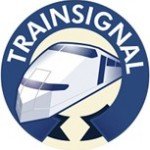Is (system) virtualization becoming legacy or old style? Sounds a strange question, but there are three main trends that are changing the role and the weight of virtualization in the IT:
- Competition and more choices and options: VMware vSphere is still the leader (in most cases), but other hypervisors like Hyper-V and KVM are growing fast and become mostly features comparable.
- Cloud management and cloud services: in most cases virtualization is hidden by the managemed and also for IaaS cloud virtualization is not necessary mandatory (see also virtualization is not cloud).
- Container and microservices: are moving new application to a new level of abstraction (and automation); in some cases virtualization is used to provide containers, but still is not mandatory.
So virtualization is become just a commodity like physical servers? Yes and no.
Physical servers have a standard platform: same CPU, same memories, same adapter and chipset… or at least not exactly the same but just compatible.
For virtualization there is a common standard for virtual disks and virtual hardware: also if the (virtualized) hardware platform is the same, this mean some effort in file conversion and also driver changes to make the VM working when you move from an hypervisor to one different. Not too much complex, but for sure time expensive (and service affect for all the time).
But there are some solutions (like Zerto or Nutanix replication, for example) that can handle it smoothly and very fast… so we are close to say that VM mobility (across hypervisor) is almost possible with little effort.
But like physical servers that potentially are the same, most people will always going to buy and use some specific brand rather than others for multiple reasons: compatibility, support, knowledge on the product, maturity of the product, or also some specific features or how they are implemented.
For sure virtualization is loosing interested and is not so cool anymore, also for who (re-)invented it: considering the US and EU editions, in the last three VMworld there was not specific news related (only) to the VMware vSphere platform! Yes, lot of integrations with other products, lot of news on Virtual SAN, but nothing specific on the new version of vSphere (that will probably be one of the topic of the next VMworld EU).
Also the announce of Windows Server 2016, with a lot of news related to the virtualization part, is not so focused on the hypervisor, or at least not only.
Another symptom is the Virtualization Field Day that has finished with Virtualization Field Day 6, formally it has never started with a first edition: first edition was a general Tech Field Day, and now has return to be a Tech Field Day… Because virtualization require also infrastructure like storage and network, but also management. And probably because most company does not want to limit themselves only on the virtual machine.
A good example came from VMTurbo that has change its name in Turbonomic some months ago. One of the official reason of this change is:
Today, our customers are moving beyond VMs to leverage containers and public clouds as they transition from monolithic to cloud-native applications.
A clear capture of the IT transformation that is happening in those years.
Maybe hypervisor will become a commodity and maybe they will become legacy when all applications will be adapter for containers or cloud native approach. But for sure is now is still needed and is still important… just like every other infrastructure piece.



